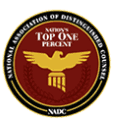Are Dogs Allowed to Run in Packs More Likely to Attack?
 Dogs are best friends to millions of adults and children and are often viewed as family members. In 2023, more than 65.1 million U.S. households had at least one dog. Dogs are the most widely owned type of pet, followed by cats and freshwater fish, like goldfish. Dogs are protectors, buddies, companions, and service animals, and most owners operate on the theory that we feed them, and they do not hurt us.
Dogs are best friends to millions of adults and children and are often viewed as family members. In 2023, more than 65.1 million U.S. households had at least one dog. Dogs are the most widely owned type of pet, followed by cats and freshwater fish, like goldfish. Dogs are protectors, buddies, companions, and service animals, and most owners operate on the theory that we feed them, and they do not hurt us.
While most dogs are every good thing we believe they are, there are instances when a dog may suddenly decide to bite. The dog could have been startled, scared, protecting its owner, or naturally aggressive. If you have been bitten by a dog, the owner of the dog may be liable for the resulting injuries. You may be unsure what you need to do following a dog bite. It can be beneficial to speak to a Will County, IL dog bite attorney.
How Dangerous Are Dogs Running in a Pack?
Unfortunately, some people – usually those in more rural areas – allow their dogs to roam outside of fences. When dogs meet up with other dogs and start running in "packs," the result can be tragic. Humans tend to forget that dogs are animals with teeth and the ability to use them, particularly when other dogs in the group are aggressive.
Several years ago, a roaming dog pack killed a Georgia couple. The woman was out for her evening walk when she was fatally attacked by a pack of at least a dozen dogs. When the woman failed to return, her husband went looking for her and met the same fate. The dogs were located and euthanized.
It is important to remember that dogs seldom kill people in the United States. The highest number of fatal dog bites in the U.S. was in 2019 when 48 people were killed by dogs. Normally, there are between 20 and 30 Americans who die each year from dog attacks, and it is much more likely for dogs to bite than attempt to kill.
What is Prey Drive?
The prey drive is a dog's innate desire to chase and catch prey. Breeding has fostered the prey drive in some dog breeds, such as terriers, hunting dogs, and herding dogs, yet most dogs have a prey drive - although it is usually hidden since they have humans who feed them.
A dog’s strong predatory drive is one reason some dogs still chase joggers, bicyclists, and even cars. Pit bulls were once bred for fighting and tend to be the breed most responsible for aggressive behaviors and biting humans. Many families with pit bulls and Rottweilers report that the dogs were gentle and friendly – until they were not.
Who is Responsible for Dog Attacks by a Pack of Dogs?
If the dogs that are running in a pack go to their respective homes every night to eat, and a person is bitten in his or her own neighborhood, they may be able to identify which dogs belong to which neighbors. If not, DNA testing can now match the saliva on a victim’s clothing to a blood sample taken from dogs.
This can be helpful when the attack involves dogs of the same breed or similar size. If evidence indicates that the victim was bitten by several dogs owned by different people, all the identified owners can be named as defendants in a personal injury claim. Regardless of how many other dogs were involved, under Illinois law, each dog owner is responsible for his or her own dog’s behavior.
Contact a DuPage County, IL Dog Bite Lawyer
If you or a loved one has been bitten or attacked by a dog, you can speak to a Naperville, IL dog bite attorney from Dog Bite Injury Lawyer - Mevorah Law Offices LLC to determine your best course of action. Our firm operates on a contingency basis, so we never take payment unless we win your case. We are a large firm with more than 175 years of collective experience who are willing to go to trial and fight aggressively for our clients. Call 630-552-6860 to schedule your free consultation.







Contact an Illinois Dog Bite Attorney
If you have suffered a dog bite injury, our personal injury lawyers can help you determine the actual value of the damages you have suffered, and we will work to help you recover the compensation you deserve. Call us at 630-552-6860 or fill out the form below to arrange a free consultation.


 630-552-6860
630-552-6860




